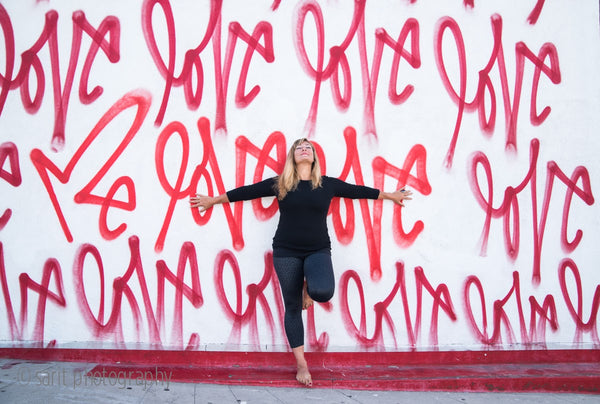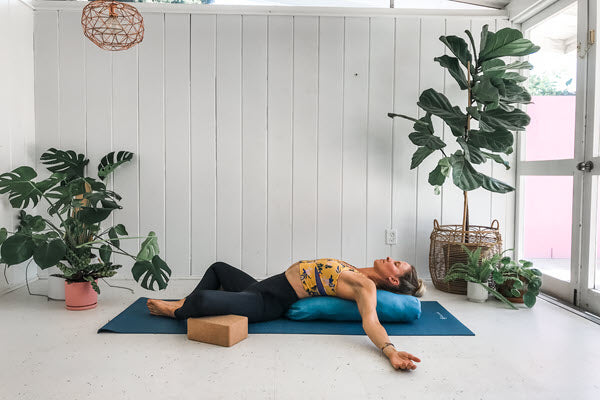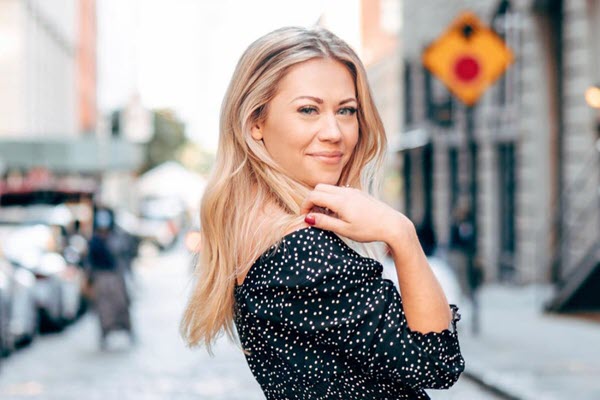Learn to Live Life Simply Through Happy and Hard Times

An excerpt from The Ten Things to Do When Your Life Falls Apart: An Emotional and Spiritual Handbook by Daphne Rose Kingma
Living Life Simply: Less is more
Living simply is paring away — stuff, obligations, expectations, people. It’s removing all the glut and rubble from your life, making space in your house, your heart, your brain and your life for exactly and only what you need. It’s getting down to the core of things and returning to a way of living that most of us can only vaguely remember: pleasures that don’t cost piles of money, rewards you don’t have to buy in stores, amusements that don’t require a screen or scrabbling with hundreds of other people to get to.
When I say live simply, I’m not talking about picking up a copy of one of those make-your-life-simple magazines at the checkout counter of the health food store for $4.95 and doing all the really pretty expensive things they tell you to do, like paint every piece of your living room furniture the same uplifting color of pea green. I’m talking about the practice of simplicity in all its forms as a kind of human grace and peace, about being present in every moment with the softest, smallest thing you can be present with — washing dishes, taking out the trash, choosing what you wear and eat and listen to, what you choose to throw away, what you save and use again. Simplicity can be as simple as sweeping the leaves from the path and using them to mulch the ferns, cutting up your old T-shirts and using them for rags, refolding and reusing a brown paper bag.
When we live with simplicity we gain a sense of hope because at some level we really do know that we’re all in this together. There is a sickening discomfort in our souls that comes from continually taking and using more than our fair share. The more of us who live simply, the more we can imagine that somehow we, as a species, might actually dig ourselves out of the landfill and climate change nightmares we have created by being such overindulgent pigs.
We feel good — hopeful, alive, optimistic — when we live simply because we can relax, knowing that we’re part of the solution and not part of the problem. We are not putting ourselves or the rest of the world in jeopardy by taking more than what is rightly ours. When we live simply we are able to rest in the peace that simple living brings: a quieting of the endless mental chatter and the agitation to have more, a simplicity of movement and action in the passage of each day. Time to sit still, to talk with your children, to stare into your lover’s eyes, to read a book, to water a tree, to pray.
Simplicity and hard times
It’s good to live simply when things are going well, but when life is difficult, it is essential. That’s because every object, habit, movement, conversation, undertaking, responsibility, and reaction takes energy. The more people, circumstances, widgets, emails, objects, people and tasks you’re dealing with, the less energy you have. If your daily to-do list is already burning up all the calories you can cobble together from dawn till dusk on a “normal” day, where are you going to get the extra energy to deal with the flood in the basement, the banker banging at the door, all those extra trips to the lab and the X-ray department when the unbearable, or the unexpected, shows up in your life?
We are energetic beings, and in a single life we get only so much energy. Do you want to use yours sorting out your storage — as one person I know does practically every Saturday, rooting through her mother’s old tablecloths — or do you want to go fishing, feel the beauty of your humanity, breathe in the majesty of the elm trees, see the bleeding colors of the sunset? We came to life not to be saddled with junk, but to feel ourselves and the mystery of life. You will need to live simply through this crisis or else you won’t have enough energy to get through it. Once you have lived through it, you will understand more about what’s really important in life. In fact, maybe that’s why it showed up in the first place.
Our life’s purpose is not simply to amass more and more stuff, but in spite of the attraction of all our stuff, the seduction of all our material attachments, to connect with the depth of who we are. If you don’t live with simplicity through these hard times, chances are you won’t make it through. Instead of being a teaching, an opportunity or a transformation, the terrible thing you’re going through now will chew you up and spit you out: sick, addicted, friendless, bitter, maybe even suicidal or dead. Is it worth it, hanging on to every little thing you’re attached to, when, simply by having the courage to cut through some of the caked-on layers of stuff, you can regain your energy? Your disaster is asking you to learn to live simply so that, instead of being a dead-end trip, it can become the doorway to a powerful new chapter of your life.
The most challenging place to live simply
The hardest place to live simply is in the realm of our possessions. Most of us are addicted to having and spending, and as a consequence, we are often possessed by our possessions. As a society, we are just beginning to learn how to have less, just starting to consider that not only do we need to recycle our old stuff but we actually need to diminish the amount of stuff we each possess.
Indeed, I’ve often wondered how it is that we Americans can so cavalierly let go of our relationships — 50 percent of first marriages end in divorce, and an even higher percentage of second and third marriages do — and yet we find it so hard to get rid of our stuff. How is it that we let go of people but hang on to things? In theory, we have our most significant connections with people, but we have such a tenacious, one-directional, desperate connection to our stuff that it almost seems as if, in a divorce, we work harder to save our possessions than our relationships. We wrangle over the flat-screen TV, the Mark Rothko painting, the silver and china. In our profound emotional poverty, we come to believe that it is really stuff — rather than a vital, vulnerable engagement with another human being — that brings us joy, meaning and contentment.
Who ever died happy because they had 10 million things in their storage locker? Because they got the spoils of their divorce? Because they had 20 of everything to choose from?
It’s beautiful and even important to let go. When you get rid of your stuff, you’re doing a couple of really great things. You are lightening your material burden, and you’re making room for something other than your possessions to take up your time, fill up your heart and get your attention. The truth is, if you can let go of people, of the man or woman you thought you’d be married to forever, then you can also get rid of the George Foreman grill, the clothes you haven’t worn for six years and the camping tent you never use. Especially right now, when somebody else could really use them.
It’s complicated to simplify your life
It isn’t easy to live simply. Everything in our world conspires against it. Our enormously productive economy demands that we make consumption our way of life, that we convert the buying and use of goods into rituals, that we seek our spiritual satisfaction, our ego satisfaction, in consumption. Consider these stunning facts:
- Each person in the United States makes more than 4 pounds of garbage per day.
- Each person in the United States is subjected to 3,000 advertisements in a day.
- Americans, collectively, have accumulated more than $9 billion in credit card debt.
In part, we’ve been tricked. The dog-eared saying that less is more promises that, Bingo! when we have less, we will automatically have more — more time, more space, more depth, more serenity. But, in fact, this takes a lot of work. You have to take real-life steps to have less, and this is a thoughtful and time-consuming process. You have to think, decide, choose, and act in every minute about what you are going to hold onto and what you want to let go of. Then you have to consciously take steps to acquire more peace and focus. The fruits of simplicity don’t just show up on your doorstep because you’ve noticed you need a new hairbrush.
If you want more time, you have to systematically avoid reading every brain-infesting news flash that wiggles its way into your world; you have to stop giving hours of attention to the headlines that pop up on your internet homepage. If you want more space, you have to dismantle all the old paint cans that are holding up the walls of your garage like the pillars of the Parthenon, find the location of the toxic waste drop-off, then load the cans in your car and actually haul them over there. If you want more breathing room in your bedroom, you have to go through the clothes in your closets and drawers — then consider, decide, toss, recycle and reorganize.
We didn’t bring the planet to its knees, spitting out hurricanes, coughing up floods, wheezing with forest fires, in just a decade. It will take decades of concentration — of love, really — to return the earth to her grace. If we as human beings are going to survive, we need to do more than romantically entertain the idea of having less. We have to understand that our self-indulgence has practically devoured us, and that it’s high time to get over it. We have to surrender to not just the beauty but the necessity of simplicity; it has to become our daily practice.
Moment by moment, we have to choose to have less, and once again we have to surrender to the organic order of things, the relationship between seedtime and harvest, between having less and finding peace, between silence and deep inner well-being. If we don’t, not only will we find ourselves taxed, exhausted, and dispirited, but ultimately, like the cat who endlessly roughs up the mouse until it lies crumpled and dead in the corner, we shall have ruined beyond repair this beautiful creature we live on.
Living simply and you
There is both a general urgency and immediate personal payoffs for living simply. When we simplify our lives, we become more available to other life experiences. What these new opportunities might be will only be revealed once you’ve taken the steps to simplify your life. Imagining the peace, the energy and the surprises that await you as a consequence of choosing to live more simply, how would you answer the following questions?
- What are 10 things you could get rid of immediately? Who could you give them to, so they remain helpful and useful, rather than throwing them away to join the 99 percent of manufactured goods that are in landfills? Can you commit to getting rid of ten things every week or once a month?
- What is an ongoing practice of conscious simplicity that you’d be willing to commit to, starting today?
- What are the rewards — concrete, emotional and spiritual — that you would like to receive from this committed movement toward simplicity? Spending less of your time dealing with possessions? Saving money? Living in a less cluttered and more beautiful environment? Cultivating a feeling of well-being, of sharing with others, of personal responsibility for the environment? Having more resources — ideas, energy, money — to focus on your current crisis or on other important problems? Increasing your spiritual connection to others and your community? Increasing the sense of peace in your own life?
“Do what you can. Where you are. With what you have.”
— Theodore Roosevelt
Also in Blog

Body Peace & Personal Empowerment

Yoga for Swimmers: Poses for Strength and Mobility

